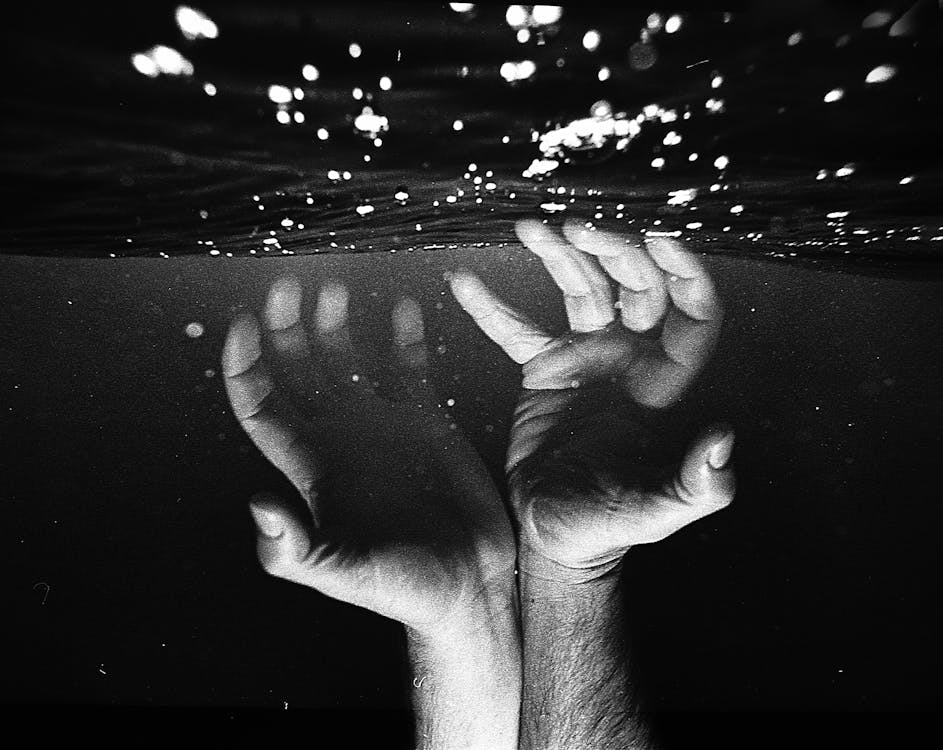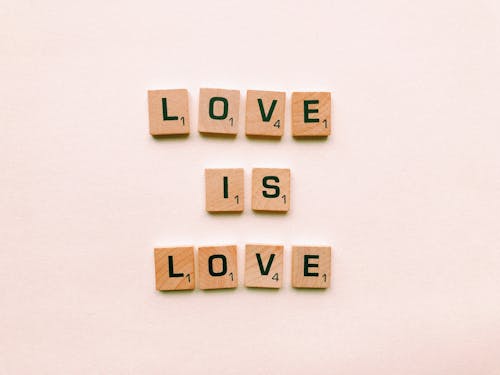Spiritual Guidance Blog
Holding On / Letting Go
by Robert Meagher on 04/02/22

We live in a world that prizes possessions. Hence, we tend
to hold on to things. Do you remember the last time you moved? How much of your
‘stuff’ did you hold on to? How much did you let go? And if you let go of
anything, how did that feel?
Personal possessions are perhaps the most obvious examples
of holding on and letting go. Yet personal relationships can be even more
dramatic example of holding on to, and letting of, things. More than our
personal possessions, we tend toward holding on to our personal relationships
with even greater verve. We tend toward clinging to our relationships. And then
when we let go of relationships, if we do, our response can be far more
dramatic than with personal possessions.
More than personal possessions or personal relationships,
the most vivid experience I have witnessed of holding on and letting go is with
what we call life in the embodied state. I have been blessed to do many things
with my Ministry work, but perhaps the most meaningful work I do is Chaplaincy
work that focuses on visitation with the sick, infirm, and transitioning (or
what is commonly referred to as dying).
I had the honor of sitting bedside with a man who was in the
process of transitioning. I remember the day very well. He was nearing the veil
of death and he shared with me that he was afraid. I held his hand and offered to
him to squeeze my hand if he felt any fear. His grip became iron clad.
At one point I said to him, “It’s okay to let go.”
“But I’m afraid.” he said.
“I am with you. I will remain with you to the end of your
time here.”
His eyes opened and I could see his fear lessening.
“Where am I going?” he asked.
“You aren’t going anywhere. You will simply remember a state
of being that has always been with you. It is a state in which you will know
nothing but peace and love.”
And with those words, he closed his eyes and journeyed
through the veil of death. His grip on my hand weakened. A sense of peace
washed over his body.
This man’s ultimate peace was in letting go of embodied life
itself. He clung to his life. He was afraid to let go. But in letting go, he
was offered the greatest gift of remembering life in its purest sense—without
our myriad of illusions cast upon it.
What are you holding on to in your life? How are you holding
on? What is it you need to let go of?
Robert Meagher has
been ordained as an Interfaith Minister and certified as a Sacred Attention Therapy (SAT) Therapist. Robert is the Founder and Spiritual
Director for Spiritual Guidance and Co-Founder of the Center for Human Awakening.
We Don’t See The World As It Is
by Robert Meagher on 03/02/22

I recently had an experience that reminded me of a timeless
spiritual teaching.
On a recent visit to the grocery store, I had on my
handy-dandy grocery list to get some cornstarch. I am so familiar with this
grocery store that I know exactly where the cornstarch is located (with other
baking needs).
So I went to the isle and section in question and began
looking of the shelves for the cornstarch. My first, quick, search found no
cornstarch. I looked again, casting my eyes further afoot to neighboring
shelves (left and right, up and down)…still no cornstarch. “That’s odd.”, I
thought. “I know this is where the cornstarch always it, normally.” I looked
more, this time walking up and down the isle a little bit...but I still could
not find the cornstarch. I could see the container of cornstarch in my mind’s
eye (remembering the jar of cornstarch I had brought home many times before),
but I couldn’t see any cornstarch on the shelf.
I noticed a store clerk working at the end of the isle. I
walked down to greet him and asked, “Do you have any cornstarch in stock?”
“Yes,” he said. “It’s just over there,” gesturing in the general direction
where I had already been looking.
I walked back down to the area I was originally looking in
and couldn’t see any cornstarch. The store clerk kept calling out, “It’s there!
Right there!” still gesturing in the exact area I was standing in. “It’s on the
top shelf,” yelled the clerk, now seemingly getting a little annoyed with me.
I looked up toward the top shelf and still could not see the
cornstarch. I started walking toward the store clerk and said, “I’m sorry, I
don’t see any cornstarch.”
The store clerk stopped what he was doing and walked down
with me to where I had been standing. To my somewhat-embarrassment, the store
clerk reached out to gently remove the box of cornstarch off the shift, smiled,
and handed it to me. I stood there with a dumb-founded look on my face. I
looked back at the shelf and there, indeed, were the boxes of cornstarch…exactly
where I had been looking all this time. But why hadn’t I seen the box?
The reason I didn’t see the box of cornstarch was because I
was looking for a round, plastic jar of cornstarch. That’s the format it had
come in the previous dozen times I bought cornstarch from that store. But the
format had changed (from a round, plastic jar to a square box).
I eventually laughed at my folly and proceeded to finish my
grocery shopping. But as I continued about my grocery store outing, I was
reminded of a timeless spiritual teaching.
We don’t see the world as it is, we see the world as we want
it to be. I had been looking directly at the box of cornstarch, but I didn’t
see it. I didn’t see it because I was expecting (i.e., wanting) the cornstarch
to be in a round, plastic container. I was blind to the new format of
packaging, even though the package clearly had ‘cornstarch’ written on the
front of it.
The experience got me thinking, “How many other times in my
life have I not seen something because I have a pre-conceived thought/image of
what it should look like, instead of what it actually looks like?” No doubt I
have done it many times. But hopefully I’ll do it less, now that I’ve had some
awareness practice!
Robert Meagher has
been ordained as an Interfaith Minister and certified as a Sacred Attention Therapy (SAT) Therapist. Robert is the Founder and Spiritual
Director for Spiritual Guidance and Co-Founder of the Center for Human Awakening.
The Butterfly Effect Comes to Life
by Robert Meagher on 01/03/22

Have you ever heard of the ‘butterfly effect’? In simple
terms, it refers to small changes in one system or area leading to large-scale
and unpredictable variation in the future state of another area or system. The
example I have most often heard to describe this theory is that a butterfly
flapping its wings in Mexico can cause a hurricane in China. You get the idea.
While the ‘butterfly effect’, like any theory, sounds good
on paper, it is sometimes hard to imagine it having a real and lasting impact
on your life. Well…the butterfly effect came to life for me in the past couple
of months.
Perhaps you are aware of the still-unfolding, geo-political
situation surrounding Canada detaining, and recently releasing, Meng Wanzhou,
Hauwei’s CFO. While Ms. Wanzhou has finally returned to China after several
years of detainment in Canada, the diplomatic outfall of the situation will no
doubt be felt for years to come.
Like many people, I never knew Ms. Wanzhou. I still don’t.
Even though I was aware of the global significance of Ms. Wanzhou’s detainment,
I never thought it would affect me directly…until last month.
One of the joys of my life over the past three years has
been teaching English as a second language to Chinese children (online). I have
grown to truly enjoy my time with the children and feel inspired by spending
time with them.
Since August, the Chinese government has slowly been
restricting the teaching of Chinese children by foreign teachers. These
restrictions have come in the form of new legislation aimed at companies
(whether domestic or foreign) that offer Chinese parents the opportunity to
teach their children English. Along the way, credible news sources such as BBC,
Bloomberg, and the New York Times, have provided some insightful analysis of
the unfolding decisions by the Chinese government. The impact of the Chinese
governments regulations is that hundreds of thousands of English teachers
around the world (mostly Canada and the US) have lost their jobs.
Did the situation with Meng Wanshou influence the Chinese
government’s decision to restrict foreign teachers from teaching Chinese
children? Some news sources (previously stated) say yes, directly. Other news
sources say ‘indirectly’. According to these same news source, the Chinese
government’s new education regulations would not have come into affect if Meng
Wangshou had not been detained.
So…I never knew Meng Wanshou, I still don’t, and I never met
her. But according to credible news sources, the decimation of the English as A
second language industry globally—an industry worth 100s of billions of dollars
annually—has been as a result of the events surrounding Mang Wanshou.
What all the preceding has emphasized for me is how we are
all interconnected. What we say, what we do, dare I say what we think, affects
everyone, everywhere. We may never know the impact of our words, our actions,
our thoughts. And we certainly may never meet the people we affect, but
everything we do, in every minute of every day, affects the entire world.
The preceding experience has been a clarion call for me to
practice kindness and love with everyone I meet. I may never know how my
kindness and love impacts others, and that’s okay, but I’d much rather my
kindness and love affect people than the alternative!
Robert Meagher has been ordained as an Interfaith Minister and certified as a Sacred Attention Therapy (SAT) Therapist. Robert is the Founder and Spiritual Director for Spiritual Guidance and Co-Founder of the Center for Human Awakening.
What if I miss the opportunity to love?
by Robert Meagher on 11/02/21

One day last month, while I was eating my
lunch, my thoughts wondered to a person in my life. This person had come into
my life within the past couple of years and made it clear they wanted to be
friends.
In the months that followed, this person communicated with me regularly, inviting the ‘friendship’ to grow. I was not keen on developing a ‘friendship’ with this person. Having them as an acquaintance was fine; but friendships take time and energy to develop and nurture, and I was not willing to invest my time and energy into developing a friendship with this person. My lack of willingness was due, in large part, to my judgements about this person and the company they kept. So, over the months since this person initially reached out, we have shared an acquaintanceship, but nothing more.
Also, over the months since this person initially reached out, I have become aware of the kindness, caring, and good deeds this person has shared with others. I have seen firsthand just how kind and thoughtful this person can be. I have witnessed how loving this person can be. But still I kept my heart closed to anything more than an acquaintanceship based on my continued judgements about this person and the company they kept.
So last month when I thought of this person over lunch, I asked myself, “What if they truly are the kind soul they appear to be?” I felt my heart opening. I felt the barriers to my extending love to this person coming down.
I then asked myself… “What if I miss the opportunity to love this person?” A sense of dread came over me. Do I really want to go through my life closing myself off from this person? Do I really want to go through my life closing myself off from anyone?
It doesn’t mean I have to change how I interact with this person who reached out a couple of years ago wanting to be friends. I don’t have to call them up, apologize on bended knee, and grovel for forgiveness. It doesn’t even mean I have to now become friends with them. What it means for me is that I can now see this person as the blessed, dear soul they truly are. I can remove my blockages to love and open my heart to them. I can stop hurting myself by withholding my love.
So here’s an exercise for you…
- Think of someone in your life that, for whatever reason, you have kept a distance from. Maybe you just don’t want to get close to them. Maybe you don’t like them. Maybe you see them as your enemy.
- Ask
yourself… “Is it possible there is some good in this person?”
- Ask
yourself… “Will I allow myself to see this good in this person?”
- Ask
yourself… “Can I accept that this person is a good person?”
- Ask
yourself… “Can I accept that this person is worthy of love?”
- Ask
yourself… “Am I willing to extend my love to this person?”
- After
you run through the questions above in regard to anyone in your life that you
are holding yourself back from loving, check how you now feel about this
person. Has anything changed?
What if you miss the opportunity to love
someone? Loving someone is not as difficult as it might seem. It’s actually the
most natural of all emotions, actions, and behaviors. We all know it. Now…let’s
do it!
Robert Meagher has been ordained as an Interfaith Minister and certified as a Sacred Attention Therapy (SAT) Therapist. Robert is the Founder and Spiritual Director for Spiritual Guidance and Co-Founder of the Center for Human Awakening.
Help Is All Around Us
by Robert Meagher on 10/03/21

Last month I headed off on one of my day-long bike rides to
bask in the beauty of the Gatineau Hills. For hundreds, if not thousands of
cyclists, the Gatineau Hills is a cycling haven and summertime playground.
After a couple of loops of the park, I decided to stop to have my lunch. When I
hopped back on my bike, I was met with a completely deflated (flat) back tire.
I knew I had a bike repair kit in my pannier bags. However,
I had a flat tire repaired at the bike shop the day before and the bike shop
had installed a style of inner tube that had a nozzle that my bike pump did not
fit. Even if I could repair the leak in the inner tube, I would not be able to
pump up the tire. I resolved myself to having a nice, yet very long, walk home.
I was at the furthest point from home, about 30km, and figured it would take me
4-6 hours to get back home on foot.
Less than 5 minutes into my walk home a young man and woman
cycling by and stopped to ask if I needed help. I explained my situation and
the young woman said she had a pump that would fit the nozzle on my inner tube.
We proceeded to pump up the tire. I thanked the young couple and hopped on my
trusty steed, relieved that I may be able to cycle back home.
After less than a kilometer, I could tell my tire was losing
air again. I was able to coast down a low-grade hill for another kilometer to
arrive at a major intersection which served as a major congregation for
cyclists, hikers and nature lovers alike.
I hopped off my bike, my tire almost completely deflated by
this point. It took less than 2 minutes and a young man stopped and asked if I
needed help. I explained my situation. We discussed the options to repair the
leek, sufficiently to enable me to get home, and both felt that if I could inflate
the tire to a high tire pressure, it should last me until I get home (as this
was the case the day before). This young man had a bike pump required for my
tire tube and pumped up my tire for me, nice and firm. I felt confident this
would do the trick. I thanked the young man for his kindness and headed off
toward home.
I cycled less than another kilometer, and the tire was
losing air fast. I knew that this tire had to be replaced. I remembered at this
point that I had a spare inner tube in my pannier bag that had a nozzle that my
bike pump would fit. But this bike, which I got last year, had disc brakes and
I had no experience removing a tire with disc brakes. So, once again, I
resolved myself to a shorter, yet still long (only 25+ kilometers now), walk
home.
After less than a kilometer, I passed a popular picnic park.
I decided it was best to call my partner to explain the unfolding situation and
let him know that I would be later getting home than usual. My partner
suggested I ask someone for help to drive me home. I thanked my partner for the
suggestion, but explain that I would need someone with a flatbed truck to fit
the bike in, as the bike would not fit in a regular car, or even a car with a
hatchback.
Just as I got the words out of my mouth (“I would need
someone with a flatbed truck…”), a man with a flatbed truck pulled into the
picnic area. I couldn’t believe my eyes! He rolled down his window and asked me
for directions to a local tourist site. Forgetting momentarily about my
predicament, I gave the man directions. He promptly thanked me and began
driving off. I then suddenly remembered I could have used his help. As I waved
my arms to flag him down, I watched him speed off in the direction I had
instructed. I stood there feeling quite forlorn! My ‘meal ticket’ had passed
through my fingertips! So close…and yet so far!
Once again, I resolved myself to a long walk home and began
my journey. Not more than a couple of minutes passed, and another young man
cycled by, stopped, and asked if I needed help. I explained the situation, that
I didn’t know how to take a tire off a bike with disc brakes. He smiled and
said, “I have disc brakes on my bike and I had to repair a flat tire earlier
today! So, you’re in luck!”, he said.
This latest savior patiently instructed me how to remove the
wheel, replace the inner tube, inflate the tire, and put the tire back on the
bike. Voila! Fifteen minutes later I was ready to roll! I thanked the young man
and blessed him a good day. I called my partner to provide an update and
informed him I would be home regular time, afterall. The cycle back home was
uneventful.
On my cycle home, I reflected on the previous unfolding
events. Four separate times someone stopped to help me. It felt like God was
insistent that I not be stranded and kept sending in the reinforcements to help
me get back home. The time spans between resolving myself I would be walking
home and then someone showing up to help me were so brief! Literally less than
5 minutes in each of the 4 situations.
The experience has convinced me that help is always around
us. We merely need to open ourselves to receiving help. In all cases, I simply
resolved myself, calmly, that I would be walking home. “It was a nice day, and
while it would be a long walk, I have lots of water and a bit of food, all will
be fine.”, I thought. I allowed myself to accept the situation and went with
the flow. In the acceptance, I removed my blockages to fear. With no fear, I
believe I opened myself to help presenting itself, seeing it, and accepting it.
Robert Meagher has
been ordained as an Interfaith Minister and certified as a Sacred Attention Therapy (SAT) Therapist. Robert is the Founder and Spiritual
Director for Spiritual Guidance and Co-Founder of the Center for Human Awakening.